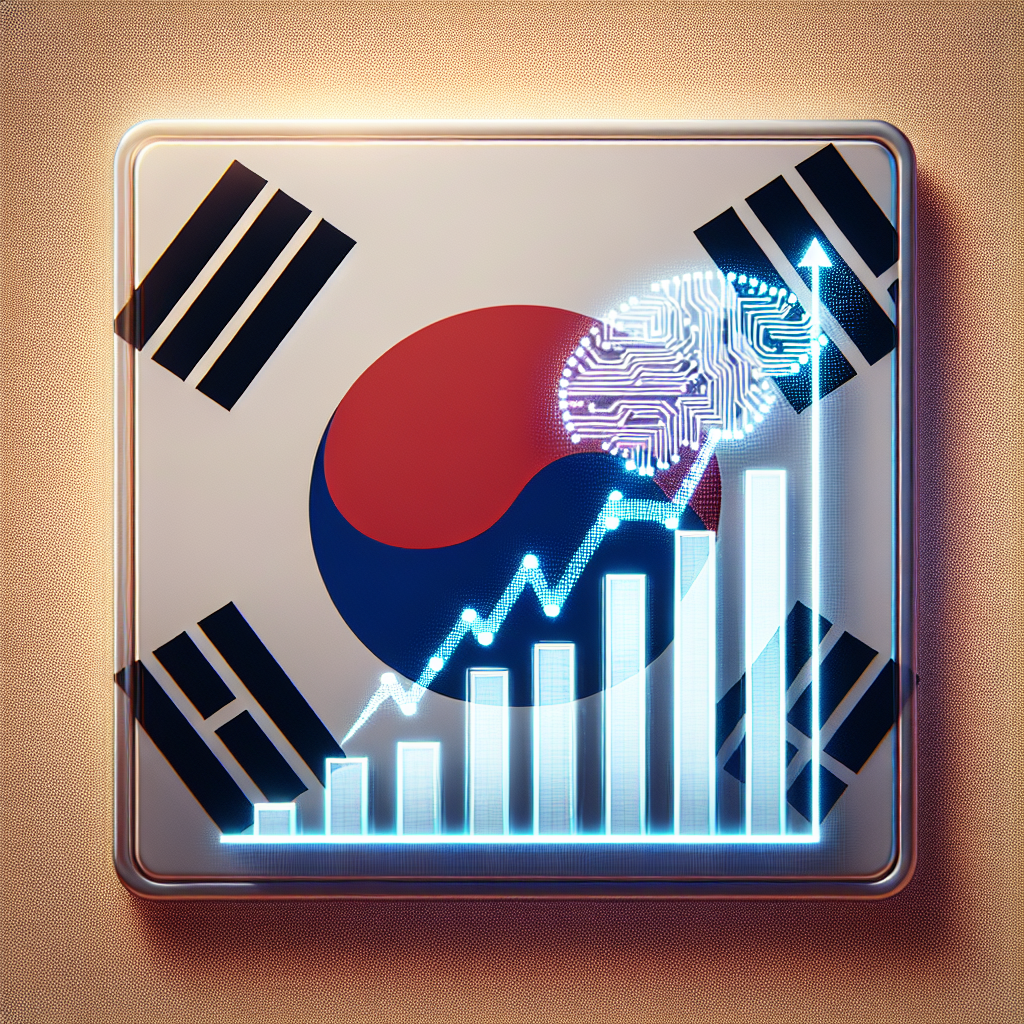South Korea is experiencing a notable productivity boost from artificial intelligence, distinguishing it as one of the few global economies benefiting in this way. However, Bank of America analysts highlighted that rising U.S.-China tensions over semiconductor technology could potentially hinder this growth.
According to a Bank of America Global Research report, the semiconductor sector constitutes 17% of South Korea’s exports. The country has notably capitalized on the AI surge, with its exports increasing by more than 50% year-over-year. The analysts believe that South Korea’s significant investment in AI research and development, accompanied by a growing number of AI-related patents, will further strengthen its leadership in AI adoption over the long term.
Nonetheless, the analysts cautioned that potential geopolitical tensions, especially between the U.S. and China, could disrupt the semiconductor supply chain, posing a serious threat to AI advancement in South Korea. Despite efforts to diversify its chip exports to other regions, China and Hong Kong still accounted for over 30% of South Korea’s chip exports in 2023. Exports to the U.S. were at a comparable level.
“Should geopolitical tensions escalate and the U.S. impose additional trade restrictions on advanced or AI-related chip exports to China, it could significantly undermine memory chip exports in Korea,” the analysts warned.
Moreover, South Korean chip manufacturers rely on China for various chipmaking components and equipment. Therefore, any disruption in the supply chain due to geopolitical tensions would make it challenging for South Korean companies to acquire essential chip production tools.
Reportedly, the U.S. has requested South Korea to restrict exports of equipment and technology used for producing memory chips and advanced logic chips to China, particularly those more advanced than 14-nanometer logic chips and DRAM memory chips beyond 18-nanometer. South Korean officials are reportedly considering this request due to potential impacts on major firms like Samsung and SK Hynix, which have operations in China, their largest trading partner.
Additionally, the Biden administration is reportedly contemplating the use of an export control measure known as the foreign direct product rule. This rule prohibits the export of any goods to certain countries if they contain a specific percentage of U.S. intellectual property components.
